#poet laureate America
Explore tagged Tumblr posts
Text
Monitoring dispatches
Phoning it in
Off the cuff
Backchannel that dog whistle
Draining the bayou
Sewing the seeds of graft
We love our namesake
TIS DO OR DIE and a
Diehard commitment to the
Absolute and mutually assured
FREEDOM TO FAIL






Monitoring dispatches
Phoning it in
Off the cuff
a simple yet complete
Backchannel
dog whistle
Drains swampland down
Through the updraft
Her laugh was infectious
Thank God her thighs were not
He visited often
Frequent flier special privileges in the officer's lounge
She had a thing after all for a throng of secret admirers from here to Timbuktu
He found himself uncontrollably drawn to her sublte displays of ability and the ubiquitous thongs
She sacrificed patella and Nomenclature to bed the Satan from the subcontinent of killers and not particularly great thinkers
I mean after the cross bow, silk, opium and gunpowder you've got thirty four thousand characters representing infinity of thoughts
But that's not the half of it
She breathlessly claimed
It's been in place and relevant for three hundred consecutive years
Then she took down Phyllis Eleanor that cunt from cahuenga who hates the drug addled artists among us
The peep show union's organizing
Halfway down the battered street holding hope hostage
As tagging and overcrowding
Conspire against the order of law
SMashing to smithereens all
Good deeds done
She can't wait to relent
Watch him repent
Without a regret
Dispersing discontent
En masse
In no particular sequence
With a clear absence of rules
With this it was with ease
And even less hesitation
That she was able to consume his considerable manhood with a gulp and a swallow more formidable
For the sheer bravado
With game changing
Follow thru
He roller over
And for the
first tolling time
Tongue rolling
SPine slurring on
the Malbec of seduction
A Chianti of the cunce
Time honored
Little displays
Of lecherous grunts
Still appealing less appalling
Since she was always full of
Well spliced restraint
Perfect pitch and
Effortless agony delivering a vanguard performance for the eon's ages
Baneless banality of hazes a ruffee in every hybrid coffee state craft
Stage three swagger
Trifling mortality
Unlicking envelopes tearing up pockets of despair
Like Trotsky to Stalin the Renegade fool tempting Lear with a truffle from a pub beau near Trafalgar square
It begins again every year
This time of day
Sewing the seeds of graft
We love our namesake
TIS DO OR DIE and a
Diehard commitment to the
Absolute and mutually assured
FREEDOM TO FAIL
0 notes
Text




Happy New Year!
What better way to begin the New Year than with wood engravings of serene winter scenes by the New England wood engraver Thomas W. Nason (1889-1971). These images are from Here at Eagle Pond by the America poet, writer, and U.S. Poet Laureate Donald Hall (1928-2018), published in New York by Ticknor & Fields in 1990. Hall, along with his wife, poet and author Jane Kenyon (1947–1995), lived at Eagle Pond Farm in Wilmot, New Hampshire, a small town in Merrimack County, from 1975 until his death. This book is a meditation on life at Eagle Pond. When he moved there from Michigan, Hall, a New Englander himself, writes:
For me, it was coming home, and it was coming home to a place of language. . . . When I was twelve or thirteen, it was here that I began writing poetry. This farm provided the subject matter for the first poems I published, when I was sixteen. . . .
The evocative wood engravings of Thomas W. Nason were reproduced for this publication from the prints in the collection of the Boston Public Library. Our copy is another donation from our friend Jerry Buff.
We wish you a bright and wonderous New Year!
View posts from New Years past.
View more wood engravings by Thomas W. Nason.
View more posts with wood engravings!
#Happy New Year!#Wood Engraving Wednesday#Happy New Year#New Year#New Years Day#New Year's Day#holidays#wood engravings#wood engravers#Thomas W. Nason#Donald Hall#Jerry Buff
84 notes
·
View notes
Text



On August 15th 1771 Sir Walter Scott the poet and novelist was born in Edinburgh.
Walter survived polio as a toddler which left him with a limp and he used a cane the rest of his life. He was the first author to have international fame in his lifetime and is credited with inventing the historical novel.
Scott used the great storytelling tradition of the Highlands to help bring back the Scottish identity that had been cruelly crushed by the British. His Waverly novels were very popular in Europe and America starting Romanticism and influencing American writers such as Thoreau and Twain.
As well as popularising the historical novel, his books more or less invented tourism in Scotland. A family holiday to Loch Katrine inspired Scott to write the epic narrative poem The Lady of the Lake; a romantic, stirring tale of secret identity, love and loss. It was a publishing phenomenon and readers flocked to see the landscape Scott had described. Thus when travel entrepreneurs such as Thomas Cook began selling packaged railroad tours in the 1840s, Scotland was one of the most popular destinations. Victorians who had grown up on Scott’s Waverley novels, and now technology made it possible to reach these areas
Scott was a prolific writer, publishing two novels a year. Readers around the globe devoured his tales of historic Scotland and its noble, heroic people.
Composers in particular found inspiration in his work, among them Gaetano Donizetti who was inspired to write the tragic opera Lucia del Lammermoor based on Scott’s novel The Bride of Lammermoor. Franz Schubert was similarly moved, setting text from The Lady of the Lake to music to create his much-loved work Ave Maria.
When King George IIII visited Edinburgh in 1822 Scott was put in charge of the festivities. This was the first time a reigning monarch had made it north of the border in over 200 years and Scott masterminded a spectacular Scottish show in his honour.
He created a romantic - and, some argued, and still do argue, an unrealistic - vision of the Highlands on the streets of the capital with parades, gatherings of clans and swathes of tartan on display. King George himself lapped up this romantic symbolism, dressing in a kilt for the occasion and, like a 19th century influencer, prompting others to wear it too. It marked a turning point in the way the world saw Scotland, and the return of tartan to fashionable society following a ban enforced by the government in the aftermath of the Jacobite rebellion.
Scott’s influence in society allowed him to lobby on causes he held dear.Sir Walter Scott got involved in a number of political issues. Particularly, his interested in issues where the government was trying to impose things on Scotland. For example, the Bank of England wanted to withdraw the right of Scottish banks to print bank notes, it's testement to the man that he features on bank notes not just today, but going back to the days of smaller nbanks, like the Linen Bank in Scotland, The Bank of Scotland range of notes still carry his portrait. Scott He stirred up such a furore that the government backed down, so you have him to thank that your not carrying English bank notes around with you, imagine a life where we Scots couldn't have a good old moan about businesses in England refusing to take our money as payment!
Scott’s popularity as a poet was cemented in 1813 when he was given the opportunity to become Poet Laureate. However, he declined and Robert Southey accepted the position instead.
Having suffered a stroke in 1831, which resulted in apoplectic paralysis, his health continued to fail and Scott died on 21st September 1832 at Abbotsford, I hope to read and post more about Sir Walter Scott in just over a months time.
38 notes
·
View notes
Text
Robert Frank on Ocean Boulevard
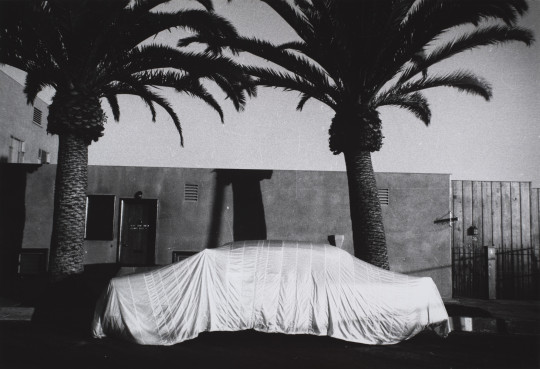
The late afternoon light, palm trees, their shadows and a covered car are elements so classic to LA and Southern California that Robert Frank's "Covered car -- Long Beach, California" could have been taken anywhere from San Diego to Santa Barbara.
I’ve been living in Long Beach for a handful of years and the photograph lives in my head rent free, in a good way, considering how much the prints can hammer for. I was out doing errands recently, stuck behind a delivery truck on Ximeno Ave, saw a covered car next to a palm tree for the 100th time and decided to find out where this was. The actual location is not obvious, Long Beach isn't a small city, without a street sign or house number, you can spend a lot of hours on Google maps.

In 1955 Frank was awarded a Guggenheim grant to document America through a road trip. He drove 10,000 miles, took 767 rolls off film, made 1,000 work prints from those selections. And edited those down to the 83 photographs of "The Americans," which became one of most influential photo books of the 20th century. (A signed, first edition can sell for $10-25,000.)
In the final edit of "The Americans," Frank pairs the covered car in a devastating way with a covered body ("Car accident—U.S. 66, between Winslow and Flagstaff, Arizona") on the following page. The sequence is a classic example of the art of photography in book form.
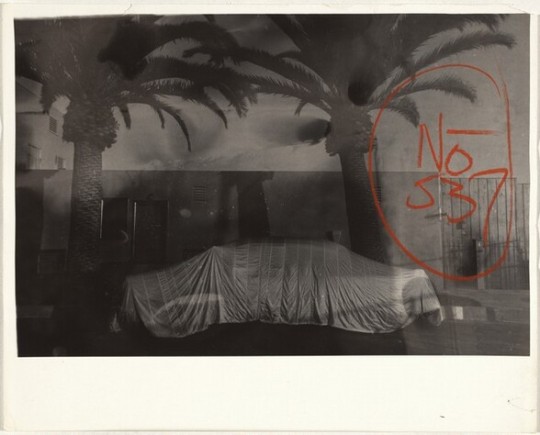
work print for "Covered car -- Long Beach, California" with related contact sheet number in red pencil
A big 2009 exhibit about "The Americans" displayed many of Frank's work prints, contact sheets, along with prints for every page in “The Americans.” The exhaustively researched catalog included each contact sheet for those 83 final prints. The Frank archive is at the National Gallery of Art and they have over 600 contact sheets from the project online. In the contact sheets, you can see frames Frank shot before and after the frame that ended up in the book. The Long Beach visit occurs in contact sheets 537-540.

10 Frames from Contact Sheet 537 related to Ocean Blvd, Long Beach
Contact sheet 537 has the sequence with “Covered Car -- Long Beach.” It combines two different rolls of film, ten frames are from Ocean Boulevard in Long Beach (made famous by LBC’s 2023 poet laureate, Lana del Rey). The other twenty frames are from a roll of film shot at a recreation center or school auditorium, of a marionette show for children.

Robert Frank, frame 5 on contact sheet 537, facing south, 13th Place, Long Beach
Seven of the ten frames feature the covered car. Frame 1 is missing, possibly a throwaway while loading film. In the first five frames, Frank shoots the covered car at the end of the street, you can tell he's interested in the scene. He could have parked his car and got out, or shot these frames from his car window. The photos show a dead end, leading to … white sky. Living here, I immediately had an idea of where this might be.

On the west side of Long Beach along the bluff overlooking the beach, there's a series of half block streets named "place" that jut south from Ocean Boulevard. Each dead-ends at the bluff, allowing beach access and real estate with water views. Some still have the “end” signs you can see in Frank’s frames. So, which one was it? In 68 years the bluff has experienced a lot of development, large towers built, original Craftsman-era homes torn down.
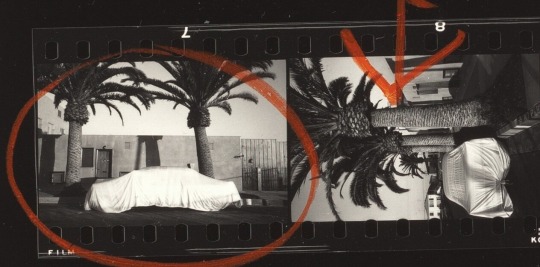
The details help identify the location: low slung garages (frames 2-6), the space carved out in the sidewalk for the palms, the glimpse of a two story building in the frame (frame 7), with a vent in a particular location. When you overexpose the MOMA jpeg, you can see a number: 20.

(left) 13th Place, Long Beach 1956, (right) December, 2024
Frank’s covered car was located at 20 13th Place. The garages there still have the number 20, though some have been rebuilt. The two-story building, built 1917, still has the vent in the same location. Interestingly, after taking five shots of the dead end, he only takes one frame of the covered car framed by the palm trees.

The next frames were taken further down Ocean Boulevard, about a half mile. A man, woman and child walk towards Frank, while on the right side of the frame the beach is visible. A woman is on a bench facing the beach.

Robert Frank contact sheet 537: Ocean Boulevard, Long Beach, (left) facing east, (right) facing north
He stops and takes a portrait of her. She’s near the corner of Ocean and Lindero - a house and bus stop are visible in the background, that (infrequently arriving) bus stop is still in that location. The angle of the shadows from the palms indicates very late afternoon.

(left): Woman seated on bench--Los Angeles [sic], 1956, (right) Ocean & Lindero, 2024
In between “Covered Car” and “Woman seated on a Bench” is the Municipal Art Center (now called Long Beach Museum of Art). If Frank had stopped there, the 1955 Long Beach Juried Art Show was up, a show of mostly local painters. The museum was housed in a distinctive historic mansion on the bluff that would have been impossible for Frank to miss on foot or even if he had driven the half mile.

Robert Frank contact sheet 537: the marionette show
The remaining question about contact sheet 537 is: where is the location of the marionette show? There's a park one block north of Ocean Boulevard that had a recreation center with a stage. It's possible Frank skipped the art museum for the rec center.
Besides identifying the location of the covered car, the other question I had: What was Robert Frank doing in Long Beach? He didn’t just drive down to look for cars and palm trees. The other contact sheets (538-540) and work prints answer this. In a follow-up post we'll look at the rest of Frank's day in Long Beach and give it an exact date.
Related to the topic of locating places and people in "The Americans":
"Robert Frank Goes to Bunker Hill" - a 2021 investigation to find the location of Frank's photo of a building on Bunker Hill, downtown Los Angeles. Deliciously deep dive that involves building permits for the neon sign in the photo and a tour of Bunker Hill via the contact sheet.
In Search of the Places in Robert Frank's "The Americans" - Nicholas Dawidoff, 2022, locates a handful of photos
"Elevators, Americans, Missed Connections" at the SFMOMA version of the 2009 exhibit, a woman (the elevator operator) recognized herself in one of the photos!
Alamo Square, San Francisco - my 2008 photo of the spot Frank's portrait of the couple was taken (he said this was his favorite photo in the book). He was probably using a wider 28 or 35mm lens to take the portrait.
17 notes
·
View notes
Text
One thing I often don't do a lot of is toot my own horn. After the past week and a half, though, I'm happy to do so.
I attended my first ever GenCon, the largest tabletop game convention in North America. Attendance this year was a record-breaking 71k. One-way masking and protections unfortunately meant that my spouse and I came home early with out first-ever COVID-19 infections. We're healed up now and mostly well.
Attending the con was exciting, overwhelming, and pushed me towards growth in a number of ways. In addition to seeing friends, I also got to see, meet, and spend time with several of my favorite comedians, game creators, and writers.
Perhaps one of the most impactful moments for me was attending the writer's symposium, which reminded me how much I loved to write fiction in my youth. Once I hit high school, I began to see it the same way I saw non-fiction writing. I always tried to include too many details. Plus, I quickly got too busy and decided it wasn't for me anymore.
Lately, though, I've been writing more poetry. I've also been entertaining the idea of possibly writing a few TTRPGs or short stories.
So, when I heard that Brandon O'Brien (the Poet Laureate for Seattle WordCon 2025) and Linda D. Addison (five-time winner of the Bram Stoker Award) were co-hosting an open mic event, I nervously jumped at the chance to read probably my favorite poem I've ever written.
Hearing these two amazing individuals alongside a roomful of people respond positively to my words wasn't something I was prepared for. But, being that vulnerable with complete strangers in-person was restorative in ways that I can't even begin to express. That's especially true of hearing folks repeat and sit with the words I carefully crafted, taking in their weight.
I have experienced a great many fascinating and incredible things, and yet I quite honestly don't know that I've known such a wonderful feeling.
So, I'm sharing that same poem here. Feel free to read or listen to it, if you so choose.
As a note, this poem is about child abuse. However, it is spoken about in metaphor and there are no details. (It also has a happy ending.)
#GenCon#GenCon 2024#GenCon Writer's Symposium#Poetry#Jacob Geller#Shirley Jackson#don't worry I'm easing myself back into things
15 notes
·
View notes
Text

Sergeant Amiri Baraka (Everett LeRoi Jones; October 7, 1934 – January 9, 2014) known as LeRoi Jones and Imamu Amear Baraka, was a writer of poetry, drama, fiction, essays, and music criticism. He was the author of numerous books of poetry and taught at several universities, including the State University of New York at Buffalo and the State University of New York at Stony Brook. He received the PEN/Beyond Margins Award in 2008 for Tales of the Out and the Gone. His plays, poetry, and essays have been described by scholars as constituting defining texts for African American culture.
He was born in Newark, where he attended Barringer High School. His father Coyt Leroy Jones worked as a postal supervisor and lift operator. His mother Anna Lois was a social worker. Jazz was something he became interested in as a kid. The influence of jazz can be seen throughout his work.
He won a scholarship to Rutgers University but transferred to Howard University. His classes in philosophy and religious studies helped lay a foundation for his later writings. He studied at Columbia University and The New School without taking a degree.
He joined the Air Force as a gunner, reaching the rank of sergeant.
His career spanned nearly 52 years, and his themes range from Black liberation to white racism. Poems that are associated with him are “The Music: Reflection on Jazz and Blues”, “The Book of Monk”, and “New Music, New Poetry”, works that draw on topics from the worlds of society, music, and literature. His poetry and writing have attracted both high praise and condemnation. In the African-American community, some compare him to James Baldwin and recognize him as one of the most respected and most published African American writers. His plays, poetry, and essays have been described by scholars as constituting defining texts for African American culture.
His brief tenure as Poet Laureate of New Jersey involved a controversy over a public reading of his poem “Somebody Blew Up America?”.
He married Hettie Cohen (1958-64) and Sylvia Robinson (1966–14). He is the father of Newark, New Jersey Mayor Ras Baraka. He has eight other children #africanhistory365 #africanexcellence
16 notes
·
View notes
Note
top 10 episodes of ww?
Oh noooooo. Okay. I'll do my best. This is simply what they are today, I can't guarantee I won't change my mind:
Dead Irish Writers
17 People
The U.S. Poet Laureate
Noel
Inauguration (1 & 2)
20 Hours in America (1 & 2)
Celestial Navigation
The Cold
The Supremes
Debate Camp
9 notes
·
View notes
Text
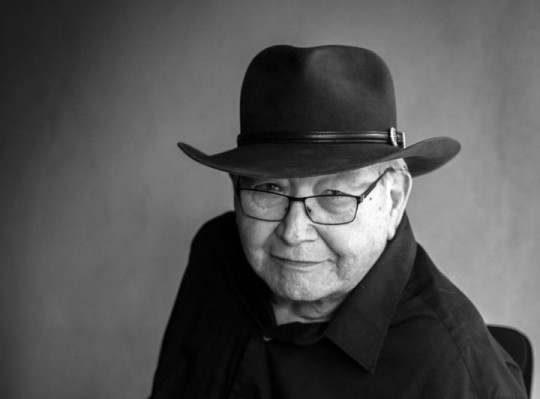
N. Scott Momaday passed in his home here in Santa Fe, January 24, 2024. Born in Lawton Oklahoma in 1934, Dr. Momaday who was a member of the Kiowa Nation spent many of his young years on Jemez Pueblo where his parents worked as teachers. He received his B.A. degree from the University of New Mexico in 1958 and his Ph.D. in English from Stanford University in 1963. He taught and researched at several universities over the years including the University of California, Santa Barbara, Harvard University in Cambridge, Massachusetts, and Moscow State University in the former Soviet Union. Part of the Native American Literature Renaissance, Dr. Momaday won the Pulitzer Prize for his novel _House Made of Dawn_ in 1968. In 1992, he received the Lifetime Achievement Award from the Native Writers' Circle of the Americas. He also served as the poet laureate of Oklahoma. He was awarded the National Medal of Arts in 2007.
From his last published work: "To An Aged Bear" "Hold hard this infirmity. It defines you. You are old. Now fix yourself in summer, In thickets of ripe berries, And venture toward the ridge Where you were born. Await there The setting sun. Be alive To that old conflagration One more time. Mortality Is your shadow and your shade. Translate yourself to spirit; Be present on your journey. Keep to the trees and waters. Be the singing of the soil."
N. Scott Momaday from The Death of Sitting Bear, 2020
[Thanks Scott Horton]
29 notes
·
View notes
Text
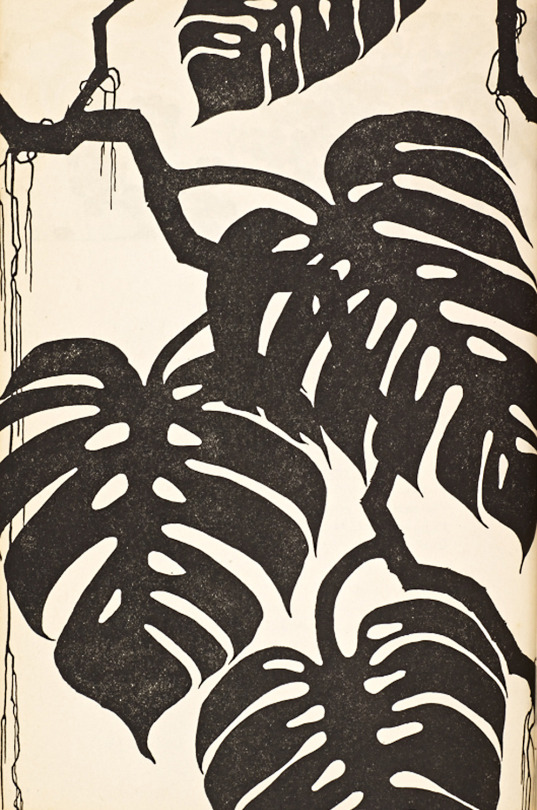
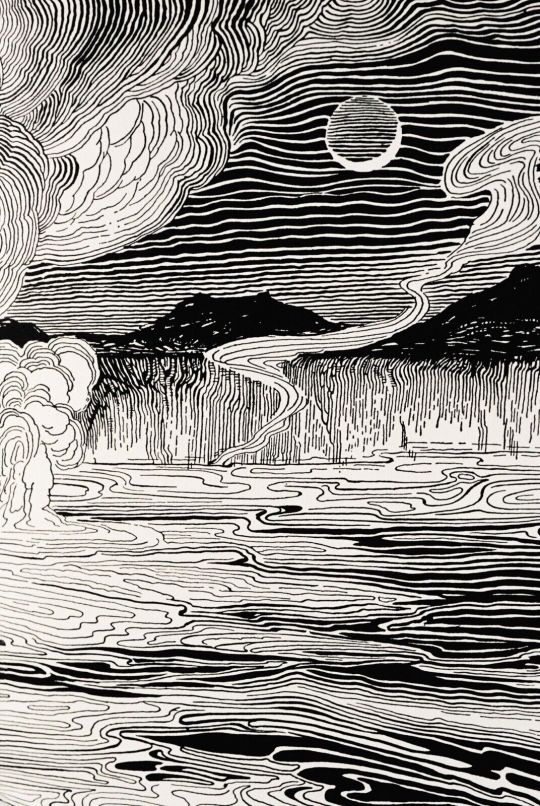

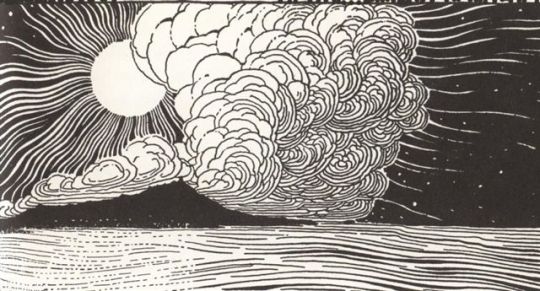
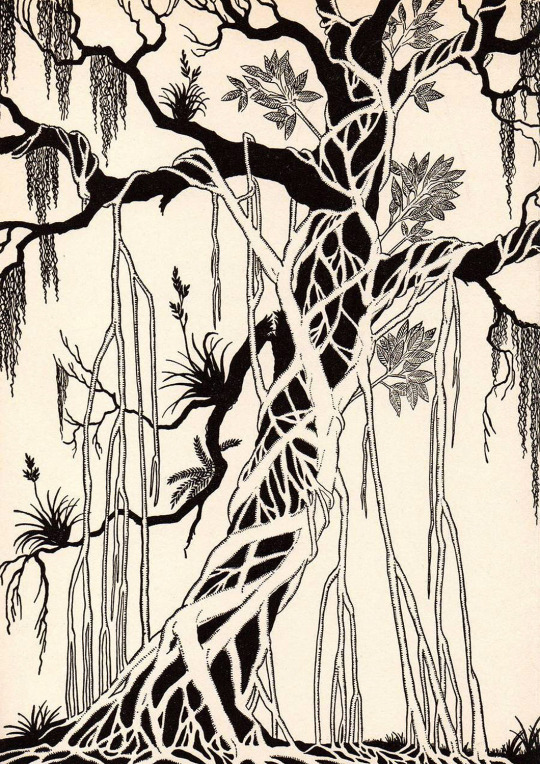
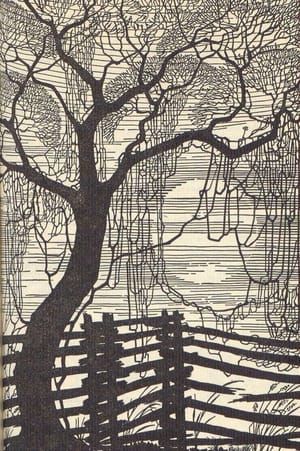
Don Blanding (1894-1957) was an American poet who loved the climate of Hawaii and was sometimes described as "poet laureate of Hawaii".
Paul Sanderson from South California writes in his blog:
"I’m willing to bet most people have never heard of Don Blanding—the early 20th century poet who illustrated his own work with elaborate pen-and-ink drawings—but I grew up in a household filled with Blanding’s books, prints, and snippets of his verse running through my head. My dad was a fan from my earliest memory and spoke of the poet’s richly woven tableaux as if the places he wrote of might actually exist in the real world and not just in the imagination. All Blanding’s poetry depict highly romantic and idealized locales—South Sea islands awash in color, the scent of jasmine in the air; jungle temples choked in vines and brimming with treasure; Oriental ports-of-call populated with mysterious characters in exotic dress, much in the tradition of Rudyard Kipling and W. Somerset Maugham.
Unlike many modern artists and writers who spend considerable time cultivating a public persona to enhance their image, Blanding never had to invent or embellish his “street cred” as a bohemian world traveler. Serving in two world wars, traveling to Europe, Central America, and throughout the United States, he tasted the life he captured in verse.
Donald Benson Blanding was born in 1894 in the Oklahoma territory. After graduating from high school in 1912 he spent two years at the Art Institute of Chicago studying art with the plans of becoming a commercial artist, what today might be called a graphic designer. He earned his way partly by teaching drawing and working as a theater usher. In 1916 after seeing a play called Bird of Paradise he was so enchanted by its depiction of Hawaii that he left for the islands a month later, arriving in Hawaii “with five dollars in his pocket.”
Continue reading https://5thcolor.wordpress.com/.../don-blanding-an.../
30 notes
·
View notes
Text

Patti Smith: Just Kids: An Autobiography (2010)
Though Patti Smith's Just Kids is subtitled An Autobiography, it's both more and less than that ...
Those wishing to read about her musical exploits as punk rock's poet laureate will be disappointed, because this is the intimate, touching, beautifully written coming-of-age story of Patti and her best friend, muse, and sometime lover: celebrated photographer, Robert Mapplethorpe.
Seeking anything but a conventional life in suburban '60s America, they independently moved to and serendipitously met in New York City, united by the naive but earnest desire to be "artists" -- exactly what kind of artists, not even they knew yet.
But Just Kids chronicles their prolonged, often uncertain, sometimes even desperate, but ultimately victorious, process of self-discovery amid the city's incomparably vital art scene of the late '60s and early '70s, rubbing elbows with peers both doomed and bound for immortality.
I simply couldn't put it down, and I've always had mixed feelings about rock 'n' roll's artsier, more elitist, and pretentious set, being a firm believer in its blue-collar attributes as the people's music, embodied by the Ramones and AC/DC.
But, as just another one of countless damaged seekers who came to New York to find themselves, I felt a distant kinship to Smith via the shared landmarks I visited and adventures I experienced decades later: catching shows at CBGB's, doing shots at El Quijote beneath the Chelsea Hotel, or riding the F Train to Coney Island.
Oh, and a note about the records pictured here: I couldn't find my copy of Horses, so Easter will have to do, and then I chose some intentionally surprising albums by Blue ��yster Cult, Sammy Hagar, Keel, containing Patti's handiwork, which also speaks to her broad influence.
Featured Records:
Patti Smith Group: Easter (1978)
Blue Oyster Cult: Tyranny and Mutation (1973)
Sammy Hagar: Sammy Hagar [A.K.A. 'The Red Album'] (1977)
Keel: The Final Frontier (1986)
Buy from: Amazon
#patti smith#robert mapplethorpe#patti smith group#poetry#punk rock#sammy hagar#blue oyster cult#keel#ramones#ac/dc#cbgbs#talking heads#blondie#television#photography#classic rock
3 notes
·
View notes
Text
Nishnaabe Nagamonan
Disclaimer: Some works deal with historical wrongs, Missing and Murdered Indigenous Women and Girls, colonialism, and residential/boarding schools. Exercise caution.
Kateri Akiwenzie-Damm is a member of Saugeen Ojibway First Nation. Akiwenzie-Damm has served as Poet Laureate for Owen Sound and North Grey. In 1993, she established Kegedonce Press, a publishing house devoted to Indigenous writers. She has also authored Without Reservation: Indigenous Erotica.
Works: (Re)Generation, My Heart is a Stray Bullet.
Marie Annharte Baker is a member of Little Saskatchewan First Nation. Annharte's work concentrates on women, urban, Indigenous, disability, and related topics. She critiques life from Western Canada. After graduating with an English degree in the 1970s, she became involved in Native activism and was one of the first people in North America to teach a class entirely on Native women.
Works: Indigena Awry, Miskwagoode, Exercises in Lip Pointing.
Lesley Belleau is a member of Garden River First Nation. She is noted for her 2017 collection Indianland. She has an MA in English literature from the University of Windsor and is working on a PhD in Indigenous Studies from Trent University.
Works: Indianland.
Kimberly M. Blaeser is an enrolled member of the White Earth Reservation. Blaeser served as Wisconsin's Poet Laureate from 2015-2016. She is a professor of English at the University of Wisconsin-Miluwakee. A contemporary of Vizenor, she is the first critic to publish a book-length study on his fiction. She has been writing poetry since 1993.
Works: Apprenticed to Justice, Trailing You, Absentee Indians and Other Poems.
Diane Burns was a member of the Lac Courte Oreilles band. Burns was Anishinaabe through her mother and Chemehuevi through her father. Burns attended the Institute of American Indian Arts and Barnard College (within Columbia University). She was also an accomplished visual artist. She is considered an important figure within the Native American contemporary arts movement.
Works: Riding the One-Eyed Ford (available online).
Aja Couchois Duncan is a Bay Area educator, writer, and coach. Duncan is of Ojibwe, French, and Scottish descent. Her debut collection won the California Book Award. She holds an MFA in creative writing from San Francisco State University.
Works: Restless Continent, Vestigal.
Heid E. Erdrich is a member of the Turtle Mountain band. Erdrich is a granddaughter of Patrick Gourneau, who fought against Indian termination during his time as tribal chairman from 1953-1959. Erdrich holds a PhD in Native American Literature and Writing. Erdrich used to teach, but has since stepped back from doing it full-time. She directs Wiigwaas Press, an Ojibwe language publisher.
Works: Cell Traffic, The Mother's Tongue, Curator of Ephemera at the New Museum for Archaic Media.
Louise Erdrich is a member of the Turtle Mountain band. Erdrich is a granddaughter of Patrick Gourneau, who fought against Indian termination during his time as tribal chairman from 1953-1959. She is widely acclaimed as one of the most significant writers of the Native American Renaissance. Owner of Birchbark Books, an independent bookstore that focuses on Native Literature.
Works: Jacklight, Original Fire, Baptism of Desire.
David Groulx was raised in Elliott Lake, Ontario. Groulx is Ojibwe and French Canadian. He received his BA in Literature from Lakehead University and later studied creative writing at the En'owkin Centre in British Columbia. He has also studied creative writing at the University of Victoria.
Works: From Turtle Island to Gaza, Rising With a Distant Dawn, Imagine Mercy.
Gordon Henry Jr is an enrolled member of the White Earth Reservation. Gordon Henry Jr holds a PhD in Literature from the University of North Dakota and is currently a professor of English at Michigan State University. He has authored several novels and poetry collections and is a celebrated writer in Michigan.
Works: Spirit Matters, The Failure of Certain Charms.
Jane Johnston Schoolcraft was Born in Sault Ste. Marie on Michigan's Upper Peninsula. Schoolcraft was given the name of Bamewawagezhikaquay ('Woman of the Sound that the stars make Rushing Through the Sky') in Ojibwe. Her mother was Ozhaguscodaywayquay, the daughter of the Ojibwe war chief Waubojeeg. Her father was fur-trader John Johnston. Johnston is regarded as the first major Native American female writer. She wrote letters and poems in both English and Ojibwe.
Writeup containing works.
Denise Lajimodiere is a citizen of the Turtle Mountain band. Lajimodiere is considered an expert on Native American boarding schools following her work Stringing Rosaries, published in 2019. She is a poet, professor, scholar, and the current Poet Laureate of North Dakota.
Works: His Feathers Were Chains, Thunderbird: Poems, Dragonfly Dance.
Linda Legarde Grover is a member of the Bois Forte Band. She is a columnist for the Duluth Tribune and Professor Emeritus of American Indian Studies at University of Minnesota (Duluth). She has written poetry, short stories, and essays.
Works: The Sky Watched, Onigamiising.
Sara Littlecrow-Russel is of Ojibwe and Han-Naxi Métis descent. Russell is a lawyer and professional mediator as well as a poet. She has worked at the Center for Education and Policy Advocacy at the University of Massachusetts and for Community Partnerships for Social Change at Hampshire College.
Works: The Secret Powers of Naming.
Jim Northrup was a member of the Fond du Lac Reservation in Minnesota. Northrup lived a traditional lifestyle in his early years. As a child, he attended an Indian boarding school where he suffered physical abuse. Later in life, he served in the Vietnam war and experienced PTSD. Much of his poetry comes from these hardships.
Works: Walking the Rez Road, Rez Salute: The Real Healer Dealer, Anishinaabe Syndicated.
Duke Redbird was born in Saugeen First Nation. He became a ward of Children's Aid at nine months old when his mother died in a house fire. He began writing to give words to his experiences as an Indigenous man raised by white foster families. He is recognized as a key figure in the development of First Nations literature.
His poetry is available on his site.
Denise Sweet is a member of the White Earth Reservation in Minnesota. Sweet served as Wisconsin's Poet Laureate from 2004-2008. She has taught creative writing, literature, and mythology at the University of Wisconsin-Green Bay.
Works: Songs for Discharming, Palominos Near Tuba City.
Mark Turcotte is a member of the Turtle Mountain Band. Turcotte is a visiting assistant professor of English at DePaul University. He has published two books of poetry. His chapbook, Road Noise, was translated into French.
Works: The Feathered Heart, Exploding Chippewas.
E. Donald Two-Rivers was raised in Emo Township, Ontario. He moved to Chicago at age 16 and became involved with the Urban Native community there. A playwright, spoken-word performer, and a poet, Two-Rivers had been an activist for Native rights since the 1970s. He was the founding director of the Chicago-based Red Path Theater Company.
Works: Powwows, Fat Cats, and Other Indian Tales, A Dozen Cold Ones by Two-Rivers.
Gerald Vizenor is an enrolled member of the White Earth Reservation. Vizenor has published over 30 books. He taught at the University of California for many years and is currently at the University of New Mexico. He has a long history of political activism and he is considered one of the most prolific Indigenous ironists writing today.
Works: Favor of Crows, Cranes Arise, Empty Swings.
#first nations poetry#first nations literature#native american poetry#native american literature#indigenous poetry#indigenous literature#ojibwe#anishinaabe#nagamon#txt
6 notes
·
View notes
Text













Voices of the Land
What better way to celebrate Indigenous Peoples’ Day than to highlight this landmark anthology that commemorates the Indigenous Peoples of North America? When the Light of the World was Subdued, Our Songs Came Through: A Norton Anthology of Native Nations Poetry, edited by Joy Harjo with Leanne Howe, Jennifer Elise Foerster, is a curated collection that features the poetry of 160 poets each showcasing a distinct voice from nearly 100 Indigenous Nations. This is the first edition from 2020, published by W. W. Norton & Company in New York.
The anthology is the first to provide a historically comprehensive collection of Native poetry. The literary traditions of Native Americans, the original poets of this country, date back centuries. The book opens with a blessing from Pulitzer Prize winner American Kiowa/Cherokee N. Scott Momaday (1934-2024) and contains introductions from contributing editors for five geographically organized sections. Each section begins with a poem from traditional oral literature and closes with emerging poets, creating a rich and diverse tapestry of Indigenous voices.
Joy Harjo, a member of the Muscogee (Creek) Nation, is a prominent figure in the literary world. She is known for her work as a poet, musician, playwright, and author. In addition to her contributions to literature, Harjo is also a celebrated performer and has released several albums combining poetry and music. In 2019, she made history by becoming the first Native American United States Poet Laureate and only the second to serve three terms. Throughout her career, Harjo has been a vocal advocate for Indigenous rights and has used her art to shed light on the experiences of Native peoples.
The following is an excerpt from Harjo’s introduction to this work:
“The anthology then is a way to pass on the poetry that has emerged from rich traditions of the very diverse cultures of indigenous peoples from these indigenous lands, to share it. Most readers will have no idea that there is or was a single Native poet, let alone the number included in this anthology. Our existence as sentient human beings in the establishment of this country was denied. Our presence is still an afterthought, and fraught with tension, because our continued presence means that the mythic storyline of the founding of this country is inaccurate. The United States is a very young country and has been in existence for only a few hundred years. Indigenous peoples have been here for thousands upon thousands of years and we are still here.”
View other Indigenous Peoples' Day posts.
View other posts from our Native American Literature Collection.
-Melissa (Stockbridge-Munsee), Special Collections Graduate Intern
We acknowledge that in Milwaukee we live and work on traditional Potawatomi, Ho-Chunk, and Menominee homelands along the southwest shores of Michigami, part of North America’s largest system of freshwater lakes, where the Milwaukee, Menominee, and Kinnickinnic rivers meet and the people of Wisconsin’s sovereign Anishinaabe, Ho-Chunk, Menominee, Oneida, and Mohican nations remain present.
#indigenous peoples' day#When the Light of the World was Subdued#Our Songs Came Through#joy harjo#Leanne Howe#Jennifer Elise Foerster#W. W. Norton & Company#N. Scott Momaday#first nations#native americans#Native poetry#indigenous literature#indigenous poetry#poetry anthology#poet laureate
78 notes
·
View notes
Text
Holidays 12.20
Holidays
Abolition Day (Réunion)
Barahimizong (Sikkim, India)
Big Chungus Day
Bo Aung Kyaw Day (Burma)
Captain America Day
Cathode-Ray Tube Day
Day of National Mourning (Panama)
Dot Your I's Day
Dot Your I's With Smiley's Day
Fête des Cafres (Abolition of Slavery Day; Réunion, French Guiana)
Fifty Ways To Leave Your Lover Day
Fur-Day
Games Day
Go Caroling Day
Halcyon Days of Calm Seas begin
International Human Solidarity Day (UN)
International Wrinkled Shirt Day
Invocation of Molag Bal (Elder Scrolls)
Katharina von Bora Day
Kitzmas
Louisiana Purchase Effective Day
Make An Ornament Day
Mudd Day
National Gregory Day
National Steven Day
Patient Empathy Day
Poet Laureate Day
Resilience Night
Ring of Troth Day
Sacagawea Day
SARE Day (Macau)
Security Agency Worker’s Day (Russia)
Shovel Day (French Republic)
Space Force Day
State Courier Service Day (Kazakhstan)
Stolen Day
Tammasmass E'en (Orkney Islands)
Try to Remember Where You Hid the Christmas Gifts Day
World Day of Skepticism
World Kajalism Day
Wrinkled Shirt Day
Yuletide Lad #9 arrives (Bjugnakraekir or Sausage Pilferer; Iceland)
Food & Drink Celebrations
BPT Remembrance Day (Before Pop Tarts)
National Cortado Day (Spain)
National Parsley Day
National Sangria Day
Pop Tart Day
Independence & Related Days
Camboriu (Declared; 2019) [unrecognized]
Campinia (Declared; 2000) [unrecognized]
Lycem (Declared; 2012) [unrecognized]
Macau (Macau Special Administrative Region established, 1999)
South Carolina (Seceded from the U.S.; 1860)
St. John (Declared; 2013) [unrecognized]
3rd Friday in December
Christmas Jumper Day (EU) [3rd Friday]
Comfort Food Friday [Every Friday]
Five For Friday [Every Friday]
Flashback Friday [Every Friday]
Friday Finds [Every Friday]
Fry Day (Pastafarian; Fritism) [Every Friday]
Mad Friday (UK) [3rd Friday]
National Holiday Party Day [3rd Friday]
National Ugly Christmas Sweater Day [3rd Friday]
TGIF (Thank God It's Friday) [Every Friday]
Underdog Day [3rd Friday]
Weekly Holidays beginning December 20 (3rd Full Week of December)
None Known
Festivals Beginning December 20, 2024
Night of the Proms (Cologne, Germany) [thru 12.21]
NOLA Christmasfest (New Orleans, Louisiana) [thru 12.30]
Winter Beer Festival (Seattle, Washington) [thru 12.21]
Feast Days
Beverly Pepper (Artology)
Cheech & Chong Day (Church of the SubGenius; Saint)
Clodion (Artology)
David Markson (Writerism)
Dominic of Silos (Christian; Saint)
Guyton Morveau (Positivist; Saint)
Hogswatchnight (in Discworld) [December 32]
Ivana Kobilca (Artology)
Kate Atkinson (Writerism)
Midwinter’s Eve Day (Starza Pagan Book of Days)
Mōdraniht (Mother’s Night; Anglo-Saxon Pagans)
Mother Night (Beginning of Yuletide; Celtic, Pagan) [Begins at Sunset]
Nicolas-Toussaint Charlet (Artology)
Not Frank Zappas Birthday (Pastafarian)
O Clavis David (4th O Antiphon or Great Advent Antiphon; Christian) [O Key of David; 4 of 7]
Onion Stuck with 9 Pins to Send True Love Night (Old England)
Paul of Latrus (Christian; Saint)
Philogonius (Christian; Saint)
Pieter De Hooch (Artology)
Pongol of the Sun (Hindu)
The Refined Young Cannonballs (Muppetism)
Saturnalia Day 4: Unbound (Pagan)
Snowflake-Riding Championships (No Goblins; Shamanism)
Swashbuckling Day (Pastafarian)
Ursicinus of Saint-Ursanne (Christian; Saint)
Ursinus (Celtic Book of Days)
Katharina von Bora (Lutheran)
Yaldā (Iran; eve of the birth of Mithra) [Day before Winter Solstice]
Lucky & Unlucky Days
Fortunate Day (Pagan) [50 of 53]
Lucky Day (Philippines) [69 of 71]
Shakku (赤口 Japan) [Bad luck all day, except at noon.]
Premieres
All That Jazz (Film; 1979)
Aquamania (Disney Cartoon; 1961)
Beanstalk Jack (Terrytoons Cartoon; 1946)
Born on the Fourth of July (Film; 1989)
Bring Himself Back Alive (Animated Antics Cartoon; 1940)
Busybody Bear, featuring Barney Bear (MGM Cartoon; 1952)
Cat Feud (WB MM Cartoon; 1958)
Cats (Film; 2019)
The Color Purple (Film; 1985)
Concert for Bangladesh (Live Album; 1971)
Double Dribble (Disney Cartoon; 1946)
Dreamgirls (Broadway Musical; 1981)
The Dumb Cluck (Oswald the Lucky Rabbit Cartoon; 1937)
Everybody Plays the Fool, recorded by The Main Ingredient (Song; 1971)
Father of the Bride (Film; 1991)
Flaming Star (Film; 1960) [Elvis Presley #6]
Gangs of New York (Film; 2002)
The Girl with the Dragon Tattoo (Film; 2011)
The Godfather Part II (Film; 1974)
The Greatest Showman (Film; 2017)
Grimm’s Fairy Tales (Fairy Tale Collection; 1812)
The Hand is Pinker Than the Eye (Pink Panther Cartoon; 1967)
Hare Lift (WB LT Cartoon; 1952)
The Horse in the Gray Flannel Suit (Film; 1968)
Hot Rocks 1964-1971, by The Rolling Stones (Compilation Album; 1971)
I’m Cold (Tex Avery Chilly Willy Cartoon; 1954)
Island at the Top if the World (Film; 1974)
It’s a Wonderful Life (Film; 1946)
Ivanhoe, by Walter Scott (Novel; 1819)
JFK (Film; 1991)
Jumanji: Welcome to the Jungle (Film; 2017)
Lover Come Back (Film; 1961)
The Man with the Golden Gun (US Film; 1974) [James Bond #9]
My Fellow Americans (Film; 1996)
Name That Tune (Radio Series; 1952)
Out of Africa (Film; 1985)
Percy Jackson and the Olympians (TV Series; 2023)
Persuasion, by Jane Austen (Novel; 1817) [#6]
Pinkcome Tax (Pink Panther Cartoon; 1968)
Pink in the Drink (Pink Panther Cartoon; 1978)
Puny Express (Woody Woodpecker Cartoon; 1950)
Rocky’s Dilemma or A Squirrel in a Stew (Rocky & Bullwinkle Cartoon, S1, Ep. 7; 1959)
Rosamunde, by Helmina von Chézy with incidental music by Franz Schubert (Play; 1823)
The Sand Pebbles (Film; 1966)
Scream (Film; 1996)
The Shooting of Caribou Lou (The Inspector Cartoon; 1967)
Star Wars: Episode IX — The Rise of Skywalker (Film; 2019)
The Submarine Squirrel or 20,000 Leagues Beneath the Sea (Rocky & Bullwinkle Cartoon, S1, Ep. 8; 1959)
They Were Expendable (Film; 1945)
Two Weeks Notice (Film; 2002)
Winnie the Pooh and the Blustery Day (Disney Cartoon; 1968)
Winnie the Pooh and Tigger Too! (Disney Cartoon; 1974)
The Witcher (TV Series; 2019)
Today’s Name Days
Eike, Holger, Julius, Regina (Austria)
Ignat (Bulgaria)
Eugen, Julije, Makarije, Slobodan, Zefirin (Croatia)
Dagmar (Czech Republic)
Abraham (Denmark)
Pärja, Pärje (Estonia)
Benjamin, Kerkko (Finland)
Isaac, Jacob, Théophile (France)
Eike, Holger, Julius (Germany)
Ignatios (Greece)
Teofil (Hungary)
Liberato, Macario (Italy)
Abrams, Argods, Arta, Minjona (Latvia)
Daugardas, Gražvilė, Teofilis (Lithuania)
Abraham, Amund (Norway)
Amon, Bogumiła, Dominik, Liberat, Teofil (Poland)
Ignatie (Romania)
Dagmara (Slovakia)
Domingo, Eugenio, Teófilo (Spain)
Israel, Moses (Sweden)
Ammon, Roxana, Roxanne, Roxie (USA)
Today is Also…
Day of Year: Day 355 of 2024; 11 days remaining in the year
ISO: Day 5 of Week 51 of 2024
Celtic Tree Calendar: Ngetal (Reed) [Day 27 of 28]
Chinese: Month 11 (Bing-Zi), Day 120 (Wu-Wu)
Chinese Year of the: Dragon 4722 (until January 29, 2025) [Wu-Chen]
Hebrew: 19 Kislev 5785
Islamic: 18 Jumada II 1446
J Cal: 25 Black; Foursday [25 of 30]
Julian: 7 December 2024
Moon: 71%: Waning Gibbous
Positivist: 19 Bichat (13th Month) [Berthollet]
Runic Half Month: Jara (Year) [Day 14 of 15]
Season: Autumn or Fall (Day 90 of 90)
Week: 3rd Full Week of December
Zodiac: Sagittarius (Day 29 of 30)
2 notes
·
View notes
Text

FLP BOOK OF THE DAY: Rare Fuel by Rex Wilder “WINNER OF THE 2023 The Donna Wolf-Palacio Poetry Prize”
On SALE now! Pre-order Price Guarantee: https://www.finishinglinepress.com/product/rare-fuel-by-rex-wilder-winner-of-the-2023-the-donna-wolf-palacio-poetry-prize/
In Rare Fuel, Rex Wilder’s fourth book, #winner of the Finishing Line Press Donna Wolf-Palacio #Poetry Prize, the author is “the Virgil who guides us through the underworld of his own personal hell” (George Bilgere), “his time as an inpatient in a mental health facility, alongside the kindness, the weirdness, the characters and the discoveries he made there. You can place it alongside the language’s other great verse chronicles of madness: Christopher Smart, say, or Ivor Gurney” (Stephanie Burt). The book resonates with the wisdom of a man “deeply invested in the mortal world,” as A.E. Stallings once highlighted. The poems ring with “the exhilaration of freedom from the chains of confinement” (Grace Schulman). Rex Wilder does not merely return to form here; he transcends it, offering readers a rare and vibrant fuel to illuminate their darkest nights.
PRAISE FOR Rare Fuel by Rex Wilder “WINNER OF THE 2023 The Donna Wolf-Palacio Poetry Prize”
Technically deft and emotionally intelligent, devoted to clarity and never simple, open to all and yet resistant to normies, worldly and otherworldly, “off leash at last,” Wilder’s fourth collection holds together around its memorable topic: the poet’s time as an inpatient in a mental health facility, alongside the kindness, the weirdness, the characters and the discoveries he made there. You can place it alongside the language’s other great verse chronicles of madness: Christopher Smart, say, or Ivor Gurney. You can also place it, easily, in the company of poets known for a fine ear: half-rhyming “tell” with “economical,” say, and finding the assonance between “ashore” and “love” amid the “standoffish deeps. Also, “grave” and “grieve” and the sand in a sieve. Don’t let this one slip through your living hands.
–Stephanie Burt (she/her) Donald and Catherine Loker Professor of English, Harvard University, poet, and “one of the most influential poetry critics of her generation” (New York Times)
In Rare Fuel, Rex Wilder is the Virgil who guides us through the underworld of his own personal hell, a mental breakdown that nearly killed him. With utter candor, Wilder describes his remarkable, harrowing journey from the brink of self-annihilation and back to this lovely world, and what I admire most about these poems is that he finds a way to give language to the unsayable. How do you describe the mind unmoored, the soul deranged? Wilder finds words for this, in a collection that will leave you shaken—but nonetheless full of hope. A beautiful book.
–George Bilgere, Poet Laureate Billy Collins’ “welcome breath of fresh, American air” and Distinguished Professor of English at John Carroll University
Rex Wilder makes words unveil feelings, and his poems are new and surprising while hewing to traditional forms. He writes about serious mental illness with sly wit, unfolding meaning, and unsentimental pathos. This collection is generous and universal—embracing the world with all its trials and triumphs and grounding us in memory, recollection, and joy; as he writes in “Recipe,” “It will get dark with or without us / but without us, I won’t care.”
–Katherine Howell, Literary Editor, National Review
In Rex Wilder‘s poems, his “traumatized heart” beats with troubled and tenacious language. Excruciating experiences toward self-worth and sanity keep the reader rapt, awaiting an uneasy affirmation of “peaceable suspense.” These are honest poems of perseverance, seeking clarity and calm while his cri de coeur persists.
–Susan Kinsolving, winner of the Poetry Society of America’s Lyric Poetry Award and finalist for The National Book Critics Circle Award
Honestly, as a psychiatrist and a human, I would read anything Rex Wilder writes. In these penetrating, intimate poems, the author courageously chronicles a dark night of the soul depression, his inpatient stay in a psychiatric facility, and breathtaking emergence into the light. I applaud Rex as a powerful role model for others on similar journeys as they grow in ways that will uplift their souls. Highly recommended.
–Judith Orloff, MD and New York Times bestselling author of The Genius of Empathy
In Rare Fuel, by Rex Wilder, a severe illness leads to reparation, even wholeness, in language that is fresh and lyrical, and in an original use of classical forms. After recovery, the poet gains wisdom and shares it with us all. There’s a new music in many of his lines: “every song / begins in song’s absence,” in “looking is no substitute for seeing,/ And every illness can startle love into being,” “this strain of love, its stain,” “the high note / only a lover can bear” or “I laugh / at the Church of I Guess./ I have nothing to confess.” “Canal Nocturne” is a sensitive, original take on the pandemic. The book rings with the exhilaration of freedom from the chains of confinement.
–Grace Schulman, Author of Again, the Dawn: New and Selected Poems and winner of the Frost Medal for Distinguished Lifetime Achievement in Poetry
Please share/please repost #flpauthor #preorder #AwesomeCoverArt #poetrybook #read #poems
1 note
·
View note
Text
Carmen Tafolla
youtube
Carmen Tafolla was born in 1951 in San Antonio, Texas. Tafolla has published more than 30 books, including prose, poetry, and children's books. She was the city of San Antonio's inaugural Poet Laureate, and the 2015-2016 Texas State Poet Laureate. Tafolla has received several other honors throughout her career, including the Tomas Rivera Award and the Americas Award.
11 notes
·
View notes
Text


This blog is 8 years old!
It's been exciting to watch Poet Scarlett Sabet grow from a novice poet to an accomplished poet mentioned in the same breath as British Poet Laureate Simon Armitage.
Poet Scarlett has traveled around the world sharing her poems and emotions at The Library of Congress in America, to Shakespeare and Company in Paris, France.
Her collection started with Rocking Underground to lastly a spoken word album Catalyst produced by Led Zeppelin Founder Jimmy Page
Poet Scarlett is a smart, caring, sensitive, and beautiful woman inside and out.
Thank you to all followers for your support.
All her collections can be purchased here
2nd photo: Scarlettzsabet Instagram
3 notes
·
View notes